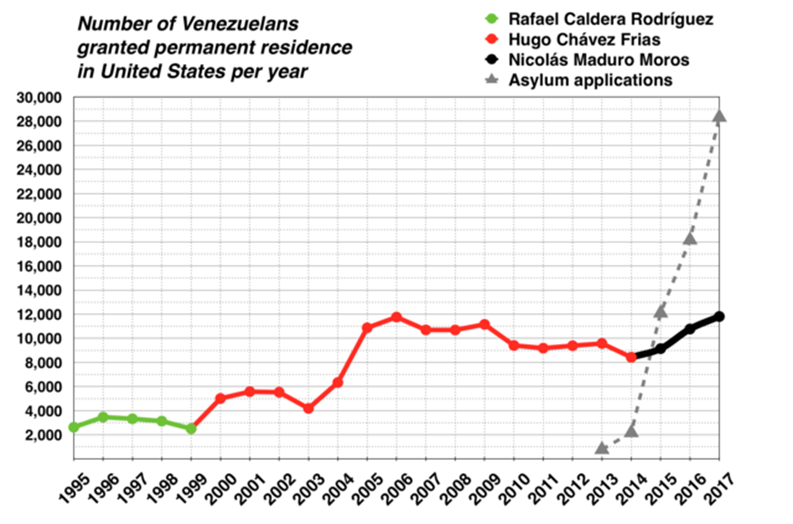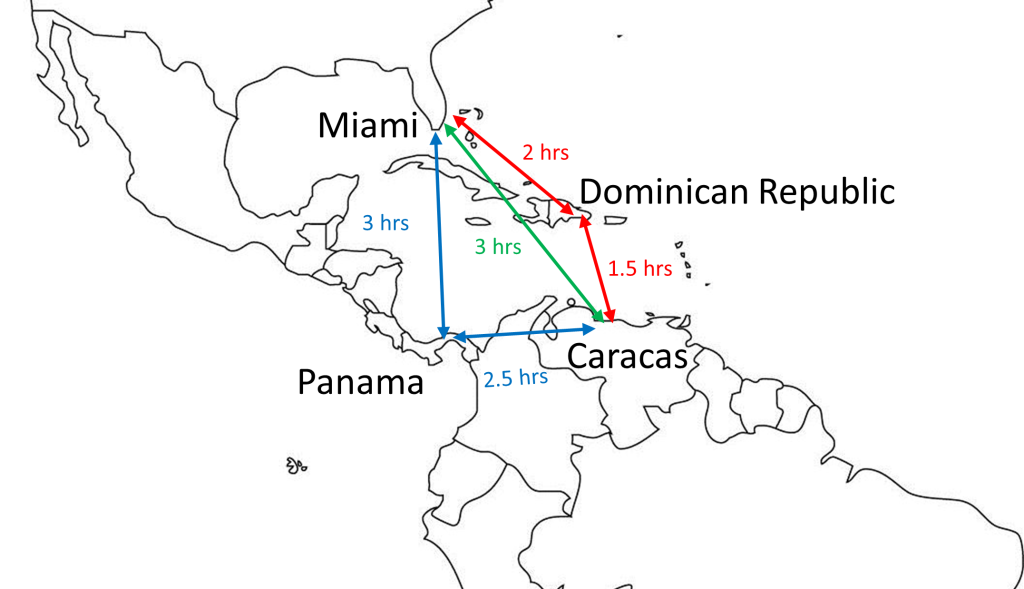Matias Lacau is an American citizen born to Venezuelan parents. Lacau, 20, used to visit Venezuela when he was a child, but current circumstances have forced him to stay away from the South American country.
“This summer it is going to be 10 years without going to Venezuela,” Lacau said, “After they closed the embassies, I did not go back because it was too dangerous.”
Just like Lacau, many Venezuelans prefer not to return because of with the ongoing crisis. However, being a Venezuelan outside the territory poses certain challenges. They face adversity when it comes to processing documents, especially if they find themselves in the US, as the American government long ago terminated diplomatic relations with Venezuela.
Leaders of both countries exchanged sanctions, including the prohibition of direct flights between countries. Embassies and consulates were closed, which complicated the process of obtaining or renewing legal documents, such as passports or visas, and resulted in the need to find an embassy outside the U.S.
“My mother had to go to Santo Domingo, you have to be in line very early because the office closes early,” Lacau explained. “She had to go back some time after, she checked on the Instagram page to see if her passport was ready.”
Lacau shares that his mother contacted the embassy on Instagram, and that she had to ask until they told her to retrieve her document or it would be sent to Venezuela.
Venezuela is home to approximately 29 million people. The country has seen an exodus of 6.8 million Venezuelans, with approximately 550,000 heading to the U.S.

Venezuelans living in the US may have a difficult time trying to leave the country, as their documentation may be expired, and can only be renewed in a different country. A Venezuelan who preferred to remain anonymous and is a legal permanent resident living in Florida, explains how his migration process has evolved as his Venezuelan documents expired.
“It is not my priority at this time to leave the country,” the Venezuelan said. “Personally it has not been a complication to have an expired passport.”
The individual recognized that it can be troublesome to not have a way to leave the country, but it has not been an issue for him. He explains that as a permanent resident, his passport is only useful if he wants to travel. However, like many other Venezuelans, he prefers to stay away from his country in the meantime.
In contrast, migrants who lack green cards need valid passports to extend and renew their visas, which forces them to leave the US to process their new documents.
This is a complication because these processes can take months and are costly. There are few places in which they can be done. Some of the places where Venezuelans can renew their passports include Dominican Republic, Mexico, and Canada. However, if their passport is already expired, theoretically they cannot travel.
The United States has recognized the crisis that Venezuela is facing, and in recent years the American government has been more flexible with Venezuelans.
To help Venezuelans, the US considers that the passports issued before 2019 are validity for five years after expiration.

The number of permanent resident permits granted to Venezuelans has had a huge growth since the socialist party took power. Asylum applications from Venezuelans have grown even faster, making them the nationality with more requests than any other.
Since his election to the presidency, Joe Biden has lifted some industrial and economic sanctions, buit this has had little benefit for Venezuelan citizens. Since 2019 there are no embassies or consulates to represent these countries in each other’s territories. Since then, there have been no direct flights between them.
Venezuela offers limited travel routes. It is a problem that the country already faced before Covid, but has worsened. The termination of non-stop flights not only results in longer trips but also more expensive ones.

The price of processing a Venezuelan passport is approximately $200. This is on top of the cost of the travel, either to Venezuela or any of the countries that still offer these services.
Venezuelan migrants have also benefitted from Temporary Protected Status (TPS), which grants them a work permit in the US, even if their visas expire or their asylum cases have no answer.
Juan Gomez, a 22-year-old Venezuelan, explains how TPS has worked for him.
“My current status is TPS, the advantages are a work permit and a travel permit,” Gomez stated. “The work permit is key to pay for my studies.”
Like Gomez, approximately 343,000 Venezuelans have a right to apply for TPS, which does not solve the extension of a visa or passport, but avoids the need for renewal. Individuals with TPS are protected by law and cannot be deported.
The solution to the passport problems of Venezuelans in the US hangs on the relations between governments. It is unlikely there will be consulates and embassies anytime soon even though President Biden has shown signs of flexibility and lifted certain sanctions.
































